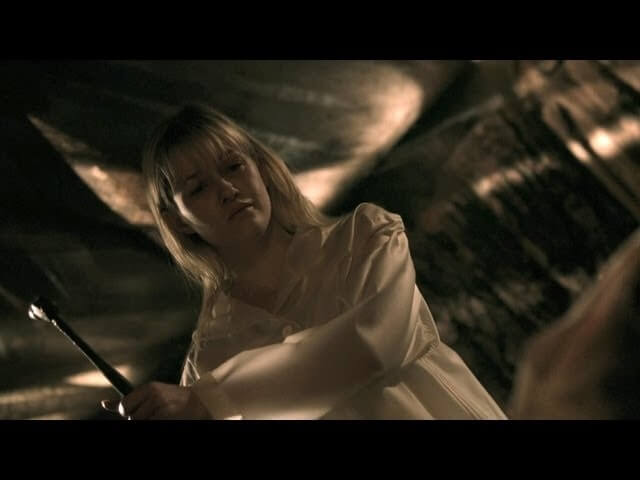An American horror remake that transcends the original

Every day, Watch This offers staff recommendations inspired by a new movie coming out that week. This week: We pay our respects to unconventional families, and the movies that feature them.
We Are What We Are (2013)
There’s a sense of sadness that permeates We Are What We Are like an autumnal fog. Every shot, every sound, every character seems riven by grief. Films that traffic in such emotionally downcast material are often dinged for being exhausting, wrenching experiences, like Michael Haneke’s Amour. And sometimes that’s true: Much as it’s hard to be around depressed people for extended periods of time, it’s difficult to subject yourself to art that suffuses itself in unhappiness. But not here—in the world of this movie, grief becomes inextricable from tension, the two coiling together until they can’t be distinguished. Which is right about the time you first see a woman killed.
Based on the 2010 Mexican film Somos Lo Que Hay (which translates to the same title), We Are What We Are is the rare American remake of a horror film that improves upon the already-strong original. When their mother suffers a fatal fall, the Parker children—Iris (Ambyr Childers), Rose (Julia Garner), and Rory (Jack Gore)—find themselves struggling to keep the family together, especially as their father Frank (Bill Sage) seems consumed with grief, and has begun behaving erratically. Iris is expected to take over her mother’s duties, which, we soon learn, involve some unpleasant tasks. The Parkers, it’s soon revealed, have a dark secret, a twisted religious practice that evolved as the result of a founding incident in the town more than a hundred years prior. But Iris and Rose decide to rebel against the horrific behavior, and soon the family is headed for an internal civil war, daughters against father, to convince one another that there’s a better way.
Blessed with uniformly excellent performances (especially Michael Parks, as a suspicious town doctor), this brilliantly understated film is the brainchild of Jim Mickle, the American director responsible for similarly smart genre fare like the post-apocalyptic vampire film Stake Land and pulpy revenge noir Cold In July. Mickle always has a strong eye for composition, but the languid small-town setting and morbid story awakened something in him, because this film is gorgeous. He lingers on small moments: A leaf dropping into a river, a watch’s backpiece being snapped into place, children still and silently sharing a bed. His camera continually pulls away from the characters, emphasizing their isolation and loneliness. (And the better to stress the intense close-ups on patriarch Frank’s coiled-snake expressions.) Mickle’s script, co-written with actor Nick Damici, flips the genders of the prior film, unearthing thorny questions about patriarchy and father-daughter relationships while tying them to American myths and religious beliefs.
Also, it’a a film about gruesome practices that doesn’t fetishize or linger on gore. There’s no gleeful severing of limbs, no dawdling shots of body parts. Before it builds to a near-operatic climax, the film dwells in the small moments between action, the times when Iris and Rose are staring out the window, or at each other, wondering what they could possibly do to stitch their family back together.
Availability: We Are What We Are is available on Blu-ray and DVD from Amazon, Netflix, or possibly your local video store/library. It can also be rented or purchased from the major digital services, and is currently streaming on Netflix.